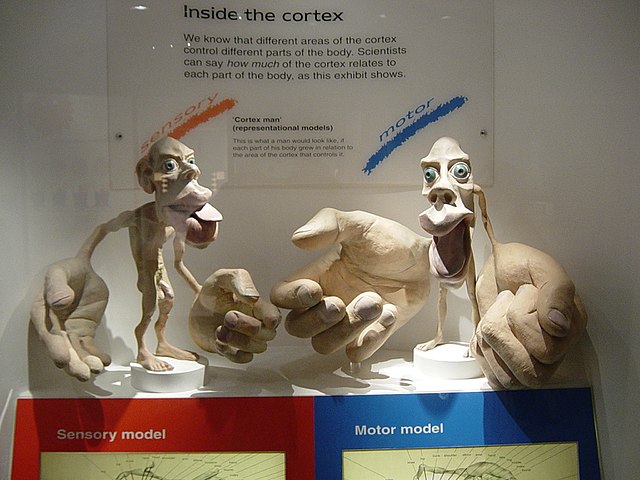Neuroeconomics is an interdisciplinary field that seeks to explain human decision-making, the ability to process multiple alternatives and to follow through on a plan of action. It studies how economic behavior can shape our understanding of the brain, and how neuroscientific discoveries can guide models of economics.
Vernon L. Smith
Ernst Fehr
George Loewenstein
David Laibson
Neuroscience is the scientific study of the nervous system, its functions and disorders. It is a multidisciplinary science that combines physiology, anatomy, molecular biology, developmental biology, cytology, psychology, physics, computer science, chemistry, medicine, statistics, and mathematical modeling to understand the fundamental and emergent properties of neurons, glia and neural circuits. The understanding of the biological basis of learning, memory, behavior, perception, and consciousness has been described by Eric Kandel as the "epic challenge" of the biological sciences.
Drawing by Santiago Ramón y Cajal (1899) of neurons in the pigeon cerebellum
The Golgi stain first allowed for the visualization of individual neurons.
3-D sensory and motor homunculus models at the Natural History Museum, London
Photograph of a stained neuron in a chicken embryo








